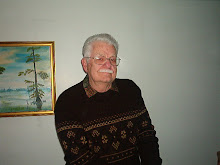Biblical Poetry Reveals Truth: by John.
Poetry Reveals Truth
Poetry in the Bible is widespread, and Biblical poetry reveals truth. If you want to understand the theology, and the response of the Hebrew people to God, read all 150 Psalms, all poetry. They not only are filled with facts, they give us the pulse and emotion of the people's heart. But the Psalms are not the only Biblical location of poetry. From Psalms through Isaiah, all five books are poetry. I didn't find any poetry in Leviticus, Joshua, I Kings or Nehemiah, but I only made a cursory trip through them with that in mind.
In the New Testament a quick scan revealed no poetry in Galatians, Ephesians, Colossians, I or II Thessalonians, I Timothy, Titus, Philemon, II Peter, I, II, III John, and Jude. Those books do have verses that are poetic in nature. Paul used quotations from Old Testament poetry all through Romans. My rough estimate is that about 25 to 35% of the entire Bible is poetry. (Someone who has made a study of this may want to correct me on any of this, and I'll receive it gladly).
Hebrew poetry has definite rhythm, but is quite free in nature. There seem to have been accepted forms, but no absolute rules. I suspect most of the authors were common people, who never read anyone else's poems before they themselves produced poetry. They doubtlessly sang folk songs/poetry when they gathered on social occasions, and common people then were probably also responsible for all the forms developed just as they are now.
The Psalms are in categories about similar things, purposes and authors. They include Praise, Royal, Wisdom and Lamentation.
Their forms vary somewhat, but most if not all verses include two parts. The first part makes a statement or asks a question. The second part may restate the first part in different words, add to the first part, ask a question, or make a contrasting statement. Several are acrostics, such as 119. Verse one line one starts with the letter aleph. Each paragraph begins with the next letter of their alphabet. (I was surprised to discover my Webster's New World Dictionary does not include that type poem as an acrostic, but the one I am about to mention does fit Webster's definition.
Page 3
Jesus spoke in verse on occasion. In Matthew 7:7,8 Jesus says, "Ask and it will be given to you; seek and you will find; knock and the door will be opened to you. For everyone who asks receives; he
who seeks finds; and to him who knocks, the door will be opened." The first word "ask" sets the pace, and the first letter of the two following lines completes the acrostic.
If you see the Bible as a dry, stale book of literal prose, learning some of the poetry will change that. It is everything but that. It is vibrant with the struggle of daily life in the Hebrew community, and we today have most of the same troubles and struggles. If things look bleak, it helps to know others have felt just like you do. If you need hope for the future, you'll find a kindred spirit in the poetry of the Bible. Read the prayer of Habakkuk in the third chapter of his book. After he complains that God sees how poor people are mistreated, he states that no matter what happens he will trust the Lord. He obviously has the faith Paul stated in Romans 8:28, "And we know that in all things God works for the good of those who love him, who have been called according to his purpose."
Page 4
As I said earlier, the Psalms are songs, and they were, and are used, in Hebrew worship services. I am thinking of Psalm 136 at the moment. It starts with, "Give thanks to the Lord, for he is good. His love endures forever." Those last four words are a refrain. All 26 verses contain them. The worshipers obviously responded with them as the leader made each statement about God. The last five Psalms end with "Praise the Lord." I am sure the congregation ended the recitation of each of those, too.
Today we use our own responsive readings, hymns and praise choruses to enhance the worship experience for the congregation. Vocal participation gives a personal, yet corporate unity to the worship experience for most people.
Three words of I John 4:16 are frequently quoted, "God is love," and that by itself is a wonderfully important statement. Most of the chapter is devoted to telling us how much God loves us, and how we can know we love God, but sadly many people never get beyond those three quoted words.
Hymnists of our day express the same thoughts with feelings that catch our attention and help us know the truth as we worship. A good example is John Newton's words in "Amazing Grace." We sing them to Edwin O. Excell's music. "Amazing grace! How sweet the sound, That saved a wretch like me! I once was lost, but now am found, Was blind, but now I see." That not only expresses, "God is love," for me, but it causes a joy to rise up in my heart. Poetry rouses our emotions revealing truth as almost nothing else does. Read the Psalms and rejoice in the message they give you! You'll be glad you did. This of course is not poetry, but I close it with, "Praise the Lord."


0 Comments:
Post a Comment
<< Home